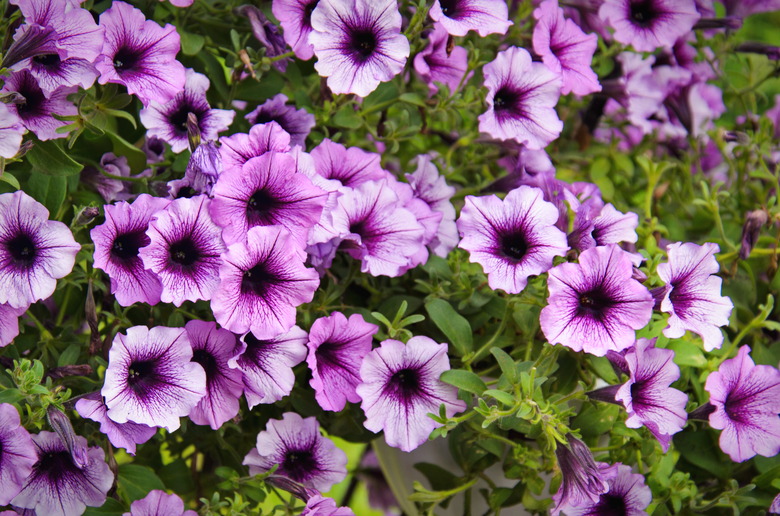Can Petunias Be Planted With Marigolds?
We may receive a commission on purchases made from links.
Petunias (Petunia x hybrida, USDA zones 10-11) and annual marigolds (Tagetes spp.) are loved for their vibrant colors and low-maintenance care. As popular spring and summer bloomers, it is common to want to plant petunias with marigolds. Whether you are looking to protect a garden or fill out a flower bed, it is always important to first research companion plants.
Tip
You can plant petunias and marigolds together, as they are excellent companion plants.
Growing Petunias and Marigolds
Growing Petunias and Marigolds
Popular for window boxes, ground cover, garden borders and edging, petunias are loved for their vibrant colors and continuous blooms from spring to the first frost. As low-maintenance plants, petunias require full sun to partial shade, medium moisture and well-drained soil.
Considered tender perennials, petunias typically are grown as annual plants, meaning they cannot withstand the winter frost and therefore need to be replanted come spring. However, petunias can be grown as perennials in U.S. Department of Agriculture plant hardiness zones 10 and 11, where the average lowest winter temperature is between 30 and 50 degrees Fahrenheit. They can also be overwintered indoors to preserve favorite plants.
Marigolds sport various yellow and orange shades and come in varieties that can grow anywhere from 6 inches to 2 feet tall. Like petunias, marigolds are annual plants that are able to grow in any zone. They require well-drained soil and full sun; however, they can also tolerate partial shade. Their seeds are quick to germinate and start to bloom about eight weeks after planting, making them popular for their quick sense of gratification.
What Is Companion Planting?
What Is Companion Planting?
Companion planting is the practice of growing plants together that derive some benefit from each other. Companion planting can also act as a natural insect repellent while also deterring certain pests and wildlife, such as raccoons. Commonly used in vegetable gardens, companion planting is a practice that can be implemented in any garden.
When you are companion planting, it is essential to consider that certain plants do not work well together and may compete for nutrients, water and space or may even spread disease. If you are growing a vegetable garden, companion plants do not necessarily have to be vegetables. Certain flower varieties can add curb appeal and can attract beneficial insects while acting as an insect repellent as well.
Planting Petunias and Marigolds
Planting Petunias and Marigolds
Petunias can be planted with marigolds provided that you leave at least 12 inches of space between them. They have similar sun, soil and moisture requirements.
Both petunias and marigolds make exceptional companion plants for vegetable gardens. Not only do petunias attract hummingbirds and butterflies, which are pollinators, but they may help repel cabbage and tomato worms, beetles and aphids. They are anecdotally recommended in vegetable gardens with beans, corn, peppers, broccoli and cabbage.
Marigolds are often used as borders around flower beds and vegetable gardens. Marigolds have been found to repel aphids, cabbage maggots, potato beetles, flea beetles and other unwanted insects. Their fragrance has also been found to keep away rabbits. In vegetable gardens, marigolds grow well with cucumbers, melons, eggplants, tomatoes and beans.
